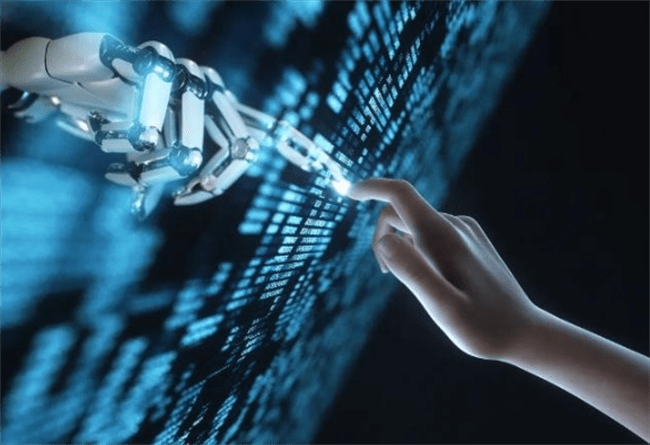 Technology peripherals
Technology peripherals
 AI
AI
 What is AI democratization? How to make AI technology further recognized by society
What is AI democratization? How to make AI technology further recognized by society
What is AI democratization? How to make AI technology further recognized by society
When new technologies are implemented at the application level, they are always difficult to implement due to understanding reasons. This also applies to artificial intelligence. The current series of social conflicts caused by artificial intelligence urgently require a more complete management structure and professional operators to further release its value. In order to promote the democratization of artificial intelligence, the following issues may deserve our attention.

Lower the access threshold: In order to achieve the democratization of artificial intelligence, it is necessary to ensure that its access threshold is not too high, and the operating interface and interaction method should be from the user's perspective. During the development process, standardized processes should also be established to reduce development costs
Improve the training process: Universities and enterprises need to develop and formulate a complete artificial intelligence training process to help cultivate individuals' practical ability to operate artificial intelligence and have equal rights to learn. To this end, a series of training courses need to be developed with clear qualification criteria. When society's average understanding and operational level of artificial intelligence improves, its acceptance will also rise.

Strengthen collaboration and communication: Deepen the exchange of experience and technology within the industry and accelerate the iteration of technology by using multiple online and offline channels; promote the collaborative development of talents in different industries, and fully promote the in-depth development of artificial intelligence application scenarios. Make it have wider application
User experience needs to be customized: models should be as open to use as possible while complying with laws and regulations. In this way, users can further adjust the content output according to their own needs, thereby obtaining a deeper technical experience

Improve the regulatory framework: To ensure that the democratic rights and interests of artificial intelligence are not infringed, we must require laws and regulations to be improved with the times; keep up with the speed of the development of artificial intelligence, eliminate potential risks, and regulate guide the direction of development. In addition, data transparency also needs to be clarified so that technological progress can be more fully supervised by society.

The democratization of artificial intelligence determines whether its subsequent application can bring benefits to society as a whole, rather than leaving the benefits of technological innovation to the exclusive enjoyment of oligarchs. This is a matter of social justice, so we must not be careless.
The above is the detailed content of What is AI democratization? How to make AI technology further recognized by society. For more information, please follow other related articles on the PHP Chinese website!

Hot AI Tools

Undresser.AI Undress
AI-powered app for creating realistic nude photos

AI Clothes Remover
Online AI tool for removing clothes from photos.

Undress AI Tool
Undress images for free

Clothoff.io
AI clothes remover

Video Face Swap
Swap faces in any video effortlessly with our completely free AI face swap tool!

Hot Article

Hot Tools

Notepad++7.3.1
Easy-to-use and free code editor

SublimeText3 Chinese version
Chinese version, very easy to use

Zend Studio 13.0.1
Powerful PHP integrated development environment

Dreamweaver CS6
Visual web development tools

SublimeText3 Mac version
God-level code editing software (SublimeText3)

Hot Topics
 1664
1664
 14
14
 1423
1423
 52
52
 1317
1317
 25
25
 1268
1268
 29
29
 1242
1242
 24
24
 Getting Started With Meta Llama 3.2 - Analytics Vidhya
Apr 11, 2025 pm 12:04 PM
Getting Started With Meta Llama 3.2 - Analytics Vidhya
Apr 11, 2025 pm 12:04 PM
Meta's Llama 3.2: A Leap Forward in Multimodal and Mobile AI Meta recently unveiled Llama 3.2, a significant advancement in AI featuring powerful vision capabilities and lightweight text models optimized for mobile devices. Building on the success o
 10 Generative AI Coding Extensions in VS Code You Must Explore
Apr 13, 2025 am 01:14 AM
10 Generative AI Coding Extensions in VS Code You Must Explore
Apr 13, 2025 am 01:14 AM
Hey there, Coding ninja! What coding-related tasks do you have planned for the day? Before you dive further into this blog, I want you to think about all your coding-related woes—better list those down. Done? – Let’
 AV Bytes: Meta's Llama 3.2, Google's Gemini 1.5, and More
Apr 11, 2025 pm 12:01 PM
AV Bytes: Meta's Llama 3.2, Google's Gemini 1.5, and More
Apr 11, 2025 pm 12:01 PM
This week's AI landscape: A whirlwind of advancements, ethical considerations, and regulatory debates. Major players like OpenAI, Google, Meta, and Microsoft have unleashed a torrent of updates, from groundbreaking new models to crucial shifts in le
 Selling AI Strategy To Employees: Shopify CEO's Manifesto
Apr 10, 2025 am 11:19 AM
Selling AI Strategy To Employees: Shopify CEO's Manifesto
Apr 10, 2025 am 11:19 AM
Shopify CEO Tobi Lütke's recent memo boldly declares AI proficiency a fundamental expectation for every employee, marking a significant cultural shift within the company. This isn't a fleeting trend; it's a new operational paradigm integrated into p
 GPT-4o vs OpenAI o1: Is the New OpenAI Model Worth the Hype?
Apr 13, 2025 am 10:18 AM
GPT-4o vs OpenAI o1: Is the New OpenAI Model Worth the Hype?
Apr 13, 2025 am 10:18 AM
Introduction OpenAI has released its new model based on the much-anticipated “strawberry” architecture. This innovative model, known as o1, enhances reasoning capabilities, allowing it to think through problems mor
 A Comprehensive Guide to Vision Language Models (VLMs)
Apr 12, 2025 am 11:58 AM
A Comprehensive Guide to Vision Language Models (VLMs)
Apr 12, 2025 am 11:58 AM
Introduction Imagine walking through an art gallery, surrounded by vivid paintings and sculptures. Now, what if you could ask each piece a question and get a meaningful answer? You might ask, “What story are you telling?
 3 Methods to Run Llama 3.2 - Analytics Vidhya
Apr 11, 2025 am 11:56 AM
3 Methods to Run Llama 3.2 - Analytics Vidhya
Apr 11, 2025 am 11:56 AM
Meta's Llama 3.2: A Multimodal AI Powerhouse Meta's latest multimodal model, Llama 3.2, represents a significant advancement in AI, boasting enhanced language comprehension, improved accuracy, and superior text generation capabilities. Its ability t
 Newest Annual Compilation Of The Best Prompt Engineering Techniques
Apr 10, 2025 am 11:22 AM
Newest Annual Compilation Of The Best Prompt Engineering Techniques
Apr 10, 2025 am 11:22 AM
For those of you who might be new to my column, I broadly explore the latest advances in AI across the board, including topics such as embodied AI, AI reasoning, high-tech breakthroughs in AI, prompt engineering, training of AI, fielding of AI, AI re



